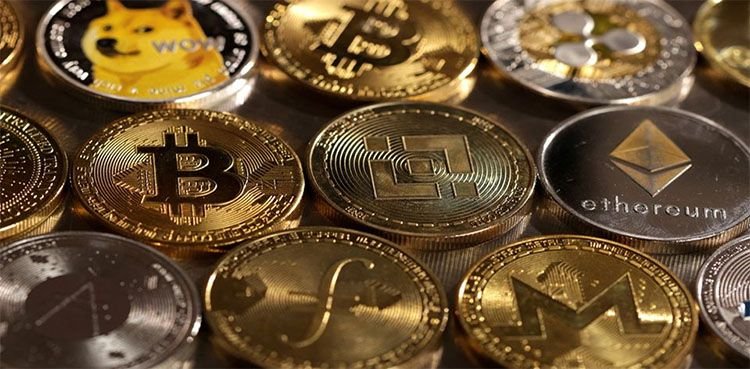South Korea’s declaration of “emergency martial law” on Tuesday has sent shockwaves through its political landscape and financial markets. President Yoon Suk Yeol’s televised announcement accused opposition parties of undermining governance, sympathizing with North Korea, and engaging in anti-state activities. This drastic measure marks a significant escalation in the country’s ongoing political crisis, raising critical questions about its implications for governance, democracy, and economic stability.
While the long-term effects on governance remain uncertain, the immediate concern revolves around the potential impact on South Korea’s stock market. Market participants are bracing for turbulence as uncertainty looms over political stability, investor confidence, and international perceptions of South Korea’s business environment.
Understanding Martial Law and Its Political Context
Martial law involves the suspension of ordinary law and the imposition of direct military control, typically during emergencies or crises threatening national security. President Yoon’s decision comes amid escalating tensions between his ruling People Power Party (PPP) and the Democratic Party, which holds a majority in parliament. The immediate catalyst appears to be disputes over next year’s budget bill and unresolved controversies surrounding top government officials.
President Yoon has faced persistent challenges in implementing his agenda due to the opposition’s control of parliament. Allegations of corruption and favoritism have further fueled political polarization, making legislative progress increasingly difficult. Accusations against opposition leaders of “sympathizing with North Korea” highlight the depth of division, as such claims carry historical weight in South Korea’s geopolitically sensitive environment.
Market Reaction to Political Uncertainty
Political events, particularly those involving martial law, often trigger significant volatility in financial markets. South Korea’s stock market, represented by the KOSPI (Korea Composite Stock Price Index), is no exception. Historically, political instability in the country has led to rapid sell-offs by both domestic and foreign investors.
Immediate Concerns
- Foreign Investment Outflows
South Korea relies heavily on foreign investment for economic growth. Political unrest typically leads to a flight of foreign capital, as investors seek safer assets. Emergency martial law signals a potential erosion of democratic norms, which could deter long-term investment. - Currency Volatility
The South Korean won is expected to face downward pressure. Investors often offload emerging market currencies during periods of political uncertainty, further amplifying market instability. - Sectoral Impact
- Technology: South Korea’s flagship technology firms like Samsung Electronics and SK Hynix may face stock price declines as global investors reassess risks.
- Defense: Companies in the defense sector might experience a temporary surge in stock prices due to increased government focus on security.
- Consumer Goods: Reduced consumer confidence may hit sectors like retail and domestic consumption.
Historical Precedents and Comparisons
South Korea has a complex history with martial law, notably during the 1970s and 1980s under authoritarian regimes. Previous declarations of martial law disrupted markets, led to capital flight, and created lasting economic challenges. Although the current situation differs, investors often draw parallels to past events, amplifying market fears.
Key Lessons from Past Crises
- Stock Market Declines
Political crises in South Korea have historically resulted in sharp stock market corrections. For instance, during the 1980 Gwangju Uprising, the KOSPI fell significantly amid widespread unrest. - Foreign Perception
South Korea’s image as a stable, investment-friendly democracy risks being tarnished. Any perception of authoritarian tendencies could lead to reduced foreign direct investment (FDI). - Recovery Timeline
Economic recovery after political crises typically takes months, if not years. Markets may stabilize only after clear resolutions or transitions of power.
Global Implications
South Korea is a critical player in the global economy, particularly in technology, automotive, and semiconductor industries. Any prolonged instability could disrupt global supply chains.
Technology Sector Disruptions
South Korea supplies essential components to global tech giants. Companies like Apple, Intel, and TSMC depend on South Korean firms for semiconductor chips. Political instability could delay production or shipments, creating ripple effects across global markets.
Geopolitical Concerns
South Korea’s political turmoil also heightens tensions in the region, particularly with North Korea. Investors may anticipate an increased risk of military confrontation, further rattling global markets.
Impact on Regional Markets
Neighboring markets, particularly in Japan and China, may experience spillover effects. Any significant decline in the KOSPI could trigger broader sell-offs in Asian stock indices.
Potential Scenarios for Tomorrow’s Stock Market
Scenario 1: Market Sell-Off
- Trigger: Heightened investor panic due to fears of authoritarian control and prolonged political deadlock.
- Impact: Broad-based decline in KOSPI, with technology and consumer sectors hardest hit. The won depreciates against major currencies, further amplifying losses.
Scenario 2: Sectoral Divergence
- Trigger: A more measured market reaction, with investors focusing on specific sectors.
- Impact: Defense stocks rally amid increased government spending, while export-heavy sectors face declines due to foreign capital outflows.
Scenario 3: Market Resilience
- Trigger: Government reassurances and intervention by South Korea’s central bank.
- Impact: Limited declines in the KOSPI, with stabilization in the currency market. Long-term concerns persist, but immediate panic subsides.
Government Responses and Market Stabilization Measures
The South Korean government is likely to announce measures aimed at calming markets. These could include:
- Central Bank Intervention
The Bank of Korea may step in to stabilize the won through currency market interventions. Interest rate adjustments could also be considered to reassure investors. - Policy Reassurances
The government might pledge to uphold democratic principles and ensure the protection of foreign investments. Public statements aimed at international stakeholders could mitigate negative sentiment. - Emergency Economic Measures
Fiscal policies such as subsidies or tax relief for businesses could be introduced to bolster domestic confidence.
Investor Strategies Amid Uncertainty
Investors navigating this crisis should consider the following strategies:
- Diversification
Reducing exposure to South Korean equities and increasing allocations to safer assets such as gold or U.S. Treasury bonds. - Sectoral Shifts
Shifting investments toward sectors expected to benefit from increased government spending, such as defense. - Currency Hedging
Using derivatives to hedge against potential depreciation of the South Korean won. - Long-Term Perspective
Recognizing that political crises often present buying opportunities once markets stabilize. Long-term investors may benefit from selectively acquiring undervalued assets.
Conclusion: Preparing for Market Volatility
The declaration of emergency martial law in South Korea underscores the fragility of its political environment and its potential to disrupt economic stability. While the long-term consequences for governance and democracy remain unclear, the immediate focus will be on the stock market’s reaction tomorrow.
Investors should prepare for heightened volatility, with potential declines in the KOSPI and the South Korean won. While government interventions may stabilize markets in the short term, lasting recovery will depend on resolving the underlying political crisis.
As the world watches closely, South Korea’s ability to navigate this crisis will determine its economic trajectory and investor confidence in the years to come.
ALSO READ: What Is Decentralized Finance (DeFi)?




